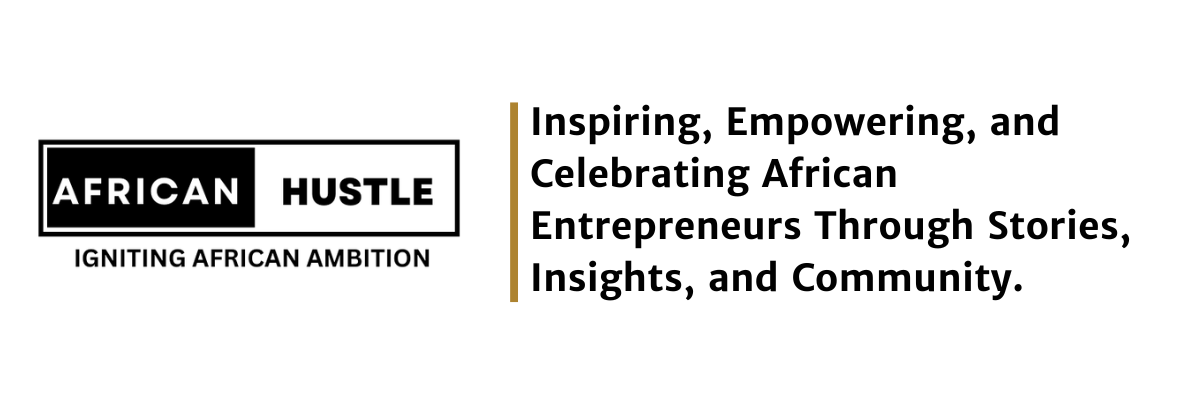
Welcome to African Hustle! Your bi-weekly dose of inspiration and smart insights into African entrepreneurship — featuring real stories about tech, culture, startups, founders, and innovations shaping the future of the continent.

I mentioned before that every now and then, you’ll hear directly from me. Not our usual newsletter packed with subsections and updates, but a real, unfiltered conversation between you and me. This is about the opportunities, the challenges, and the raw, unvarnished truth about what’s happening in Africa.
I’m particularly irked as I write this. The unrest in Congo is tearing lives apart and a measure of animosity is brewing between South Africa and Rwanda ( or maybe it’s just limited to the utterances of Kagame and Ramaphosa). And these are just the recent stories.
Africa ranks second in the world for the number of armed conflicts. That’s just crazy! Why are we perpetuating the atrocities of past colonial regimes? Yet we call ourselves independent!
Over 35 non-international armed conflicts are raging across Burkina Faso, Cameroon, the Central African Republic (CAR), the Democratic Republic of the Congo, Ethiopia, Mali, Mozambique, Nigeria, Senegal, Somalia, South Sudan and Sudan.
Let that sink in. Over 35 conflicts. Lives destroyed. Futures stolen.
And then there’s the duo of Trump and Elon Musk. Trump, who ordered precision airstrikes in Somalia, slashed foreign aid to African nations and then threatened South Africa over its Expropriation Act — a policy designed to address decades of land inequality. Musk, meanwhile, amplifies Trump’s propaganda, dividing international perspectives.
Elon Musk has long been a hero of mine — a symbol of innovation and ingenuity. But today, it’s gut-wrenching to watch him parrot reckless, uninformed rhetoric about South Africa’s complex realities.
This got me thinking about the place for foreign aid in Africa when it can be weaponized to influence the internal politics of constitutional democracies!
Africa is rich — insanely rich.
We have the resources, human capital, youth, and potential to be a global powerhouse. Yet, too often, we find ourselves begging for handouts. Foreign aid props up essential sectors, keeping us dependent instead of empowering us.
Foreign Aid is a Band-Aid, not a cure. It’s time to break free, and that starts with entrepreneurs like you. To break the circle in our own little ways, we have to start by identifying sectors dependent on foreign aid and aim to disrupt them.
The Industries Most Dependent on Foreign Aid — And How to Disrupt Them
Healthcare
Foreign aid funds a significant portion of Africa’s healthcare system. In South Africa alone, nearly 20% of the HIV/AIDS program is backed by PEPFAR and other external donors. What then happens when funding is cut or redirected? As has been threatened now!
And this is the reality across Africa. Trump has stopped funding for USAID. Not just USAID in particular, but foreign aid in the broader sense. And many African diplomats are clamouring on social media and queueing at American embassies seeking reprieves.
In most of sub-Saharan Africa, pharmaceutical imports comprise as much as 70 to 90 per cent of drugs consumed. This dependence on imports leaves African citizens vulnerable to shortages of medication. And health facilities too. This problem once triggered a continent-wide crisis during the pandemic. And this had Bill Gates predicting up to 10 million deaths in Africa due to coronavirus; luckily for us, this did not come to pass.
Hustlers need to step up. Startups in telemedicine, local pharmaceutical production, and affordable health insurance models can disrupt this space. Why aren’t we manufacturing our own drugs at scale? Why aren’t we building digital health platforms to reach underserved communities?
More local manufacturing of medications and active pharmaceutical ingredients could strengthen health systems throughout Africa.
Education
Education is a critical tool for combating poverty and a literate population is key for success. Many African schools and universities rely on foreign grants to function. But imported education models don’t fit our needs. Instead of waiting for aid, entrepreneurs must build African-centered, scalable education solutions.
Most school curriculums remain outdated with many African nations maintaining curriculums originally set up by their old colonial governments, often teaching skills not transferable to their everyday lives. Worse still, the majority of foreign aid programs fail to provide long-lasting solutions, except merely being band-aids over significantly larger issues.
… what students in impoverished regions need are not more academic skills, but rather life skills that enable them to improve their financial prospects and well-being. These include financial literacy and entrepreneurial skills; health maintenance and management skills; and administrative capabilities, such as teamwork, problem-solving, and project management.
Edtech is the key part of the solution that we as entrepreneurs should be eying. Platforms that offer online learning in local languages, AI-driven tutoring, and vocational training tailored to Africa’s job market can transform education. If India can educate millions through low-cost digital platforms, so can we.
Agriculture
Agriculture employs over 60% of Africa’s workforce, yet we still depend on food aid.
It gets even worse!
Africa has 60% of the world's arable land and yet Sub-Saharan Africa has the highest number of undernourished people in the world.
This same Africa has 65% of the world's remaining uncultivated arable land.
According to Farming First, the average African farm performs at only about 40% of its potential. And on present trends, the continent will only produce 13% of its food needs by 2050.
Commercialization of agriculture is part of the solution to wean Africa off imported agricultural produce. Agro-processing is the other part of the answer.
Instead of shipping raw cocoa to Switzerland, let’s produce premium chocolate brands at home. Instead of exporting unprocessed coffee beans, let’s create high-end African coffee chains that rival Starbucks. The global market for these products is massive, and we should be cashing in.
Opportunities are abundant for entrepreneurs working on production, access to markets, finance, technology, knowledge and mechanisation.
Energy
Africa has vast renewable energy potential, yet billions are spent on importing fuel. Am not sure if the benefits of the Dangote Refinery are yet evident in Nigeria! Especially with all the alleged red tape. (We are our own worst enemies sometimes) But the initiative is a giant leap in the right direction.
Western aid funds many of our energy projects, giving donors control over our infrastructure.
Look at this hypocrisy: 84% of the energy produced in the United States comes from nonrenewable fossil fuels. But all the areas of foreign aid condone non-renewable fossil fuels in Africa.
Entrepreneurs need to be looking to develop advanced coal technologies that include carbon capture and storage. It seems everyone is entirely obsessed with solar and forgets that Africa has over 20 billion short tons of coal in reserves.
We need to invest in decentralized energy solutions. Solar, wind, and hydroelectric startups can power remote communities and businesses, making Africa self-sufficient. Companies like M-KOPA are already leading the way — there’s room for more hustlers to step in.
How Hustlers Can Lead the Charge
Build Businesses that Solve Real Problems
African entrepreneurs need to see poverty not as a social issue but as an untapped market. The bottom of the pyramid holds billions in purchasing power. Fintech for financial inclusion, low-cost housing, and affordable healthcare are goldmines waiting to be tapped.
Add Value to Raw Materials
Exporting raw materials is economic suicide. The real money is in processing and branding. Get into manufacturing, mining technology, and product development. Dangote has shown what’s possible — now it’s time for more entrepreneurs to scale similar models.
Leverage the AfCFTA for Intra-African Trade
Why are we looking to the West when Africa itself is a 1.4 billion-person market? The African Continental Free Trade Area (AfCFTA) is a game-changer, allowing entrepreneurs to scale businesses across borders. Think beyond your country — expand regionally.
Use Tech to Leapfrog Development
Technology doesn’t care about borders or historical disadvantages. It levels the playing field. From telemedicine to blockchain-based financial solutions, tech is Africa’s best bet for breaking the aid cycle. If you’re not thinking digital, you’re already behind.
Engage in Policy and Advocacy
Entrepreneurs can’t afford to ignore policy. We need to push for laws that support local industries, ensure wealth redistribution(even if Elon and Trump may misunderstand), and make business easier. If governments don’t hear from business leaders, they’ll keep making decisions that favour foreign donors over local entrepreneurs.
Tap into the Diaspora
The African diaspora is a goldmine of talent, capital, and expertise. Instead of seeking aid from foreign governments, let’s build stronger ties with Africans abroad. Many are willing to invest — but they need structured, reliable opportunities. In 2023, global remittances to Africa by the African diaspora were estimated to exceed US$100 billion, which is about twice the amount of overseas development assistance. Since Africans are, unknowingly, the biggest funders of Africa. Innovators need to arise to reshape and package investment and finance opportunities for the African diaspora. This will enable them to invest in homegrown solutions and businesses.
Shift the Narrative From Aid to Investment
Africa isn’t a charity case as it has been packed to be — it’s an investment opportunity. Entrepreneurs must position their businesses as vehicles for both profit and impact. The global appetite for African innovation is growing; we must own the narrative and drive investment into scalable ventures.
Foreign aid to Africa is not limited to the USA and its allies. China, too, is a major player. Even though we advocated to Look East and derive entrepreneurial lessons from there, we should be vigilant to see that our politicians are not selling us out — either to the East or West!
Hustlers don’t rely on handouts. They create value, solve problems, and build the future.
What’s your next move?
Will you sit back and wait for politicians to fix things? Or will you roll up your sleeves and get to work?
Africa’s future isn’t in the hands of foreign donors or governments — it’s in the hands of hustlers like you.
Let’s get to work.
Enjoyed this post? Share it with someone who might find it helpful and encourage them to subscribe!
If we missed something, we’d love to hear from you — hit reply and let us know what insights you want us to dive into next.
And if this email was forwarded to you, you can sign up here!

